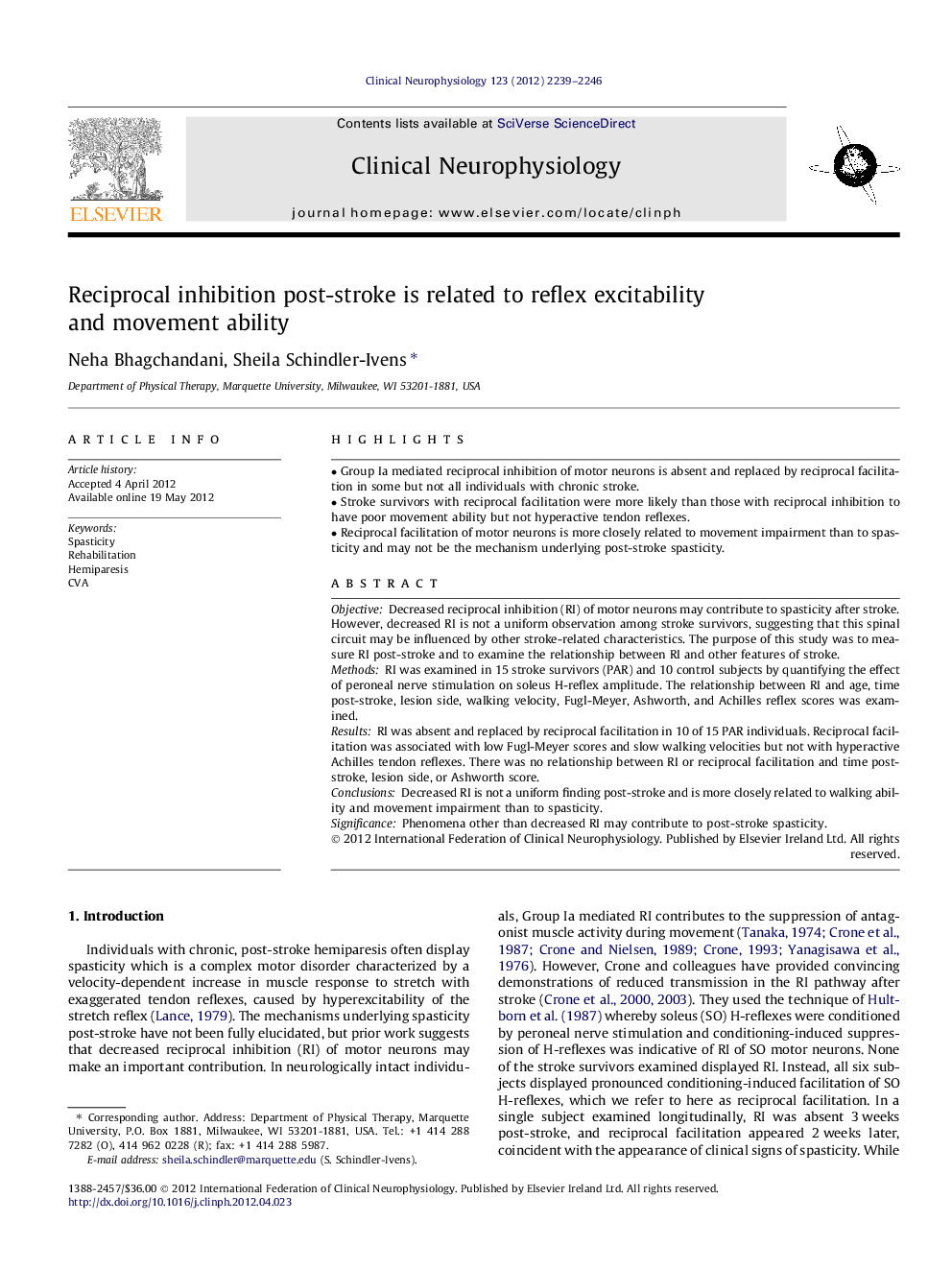| کد مقاله | کد نشریه | سال انتشار | مقاله انگلیسی | نسخه تمام متن |
|---|---|---|---|---|
| 3043115 | 1184971 | 2012 | 8 صفحه PDF | دانلود رایگان |

ObjectiveDecreased reciprocal inhibition (RI) of motor neurons may contribute to spasticity after stroke. However, decreased RI is not a uniform observation among stroke survivors, suggesting that this spinal circuit may be influenced by other stroke-related characteristics. The purpose of this study was to measure RI post-stroke and to examine the relationship between RI and other features of stroke.MethodsRI was examined in 15 stroke survivors (PAR) and 10 control subjects by quantifying the effect of peroneal nerve stimulation on soleus H-reflex amplitude. The relationship between RI and age, time post-stroke, lesion side, walking velocity, Fugl-Meyer, Ashworth, and Achilles reflex scores was examined.ResultsRI was absent and replaced by reciprocal facilitation in 10 of 15 PAR individuals. Reciprocal facilitation was associated with low Fugl-Meyer scores and slow walking velocities but not with hyperactive Achilles tendon reflexes. There was no relationship between RI or reciprocal facilitation and time post-stroke, lesion side, or Ashworth score.ConclusionsDecreased RI is not a uniform finding post-stroke and is more closely related to walking ability and movement impairment than to spasticity.SignificancePhenomena other than decreased RI may contribute to post-stroke spasticity.
► Group Ia mediated reciprocal inhibition of motor neurons is absent and replaced by reciprocal facilitation in some but not all individuals with chronic stroke.
► Stroke survivors with reciprocal facilitation were more likely than those with reciprocal inhibition to have poor movement ability but not hyperactive tendon reflexes.
► Reciprocal facilitation of motor neurons is more closely related to movement impairment than to spasticity and may not be the mechanism underlying post-stroke spasticity.
Journal: Clinical Neurophysiology - Volume 123, Issue 11, November 2012, Pages 2239–2246